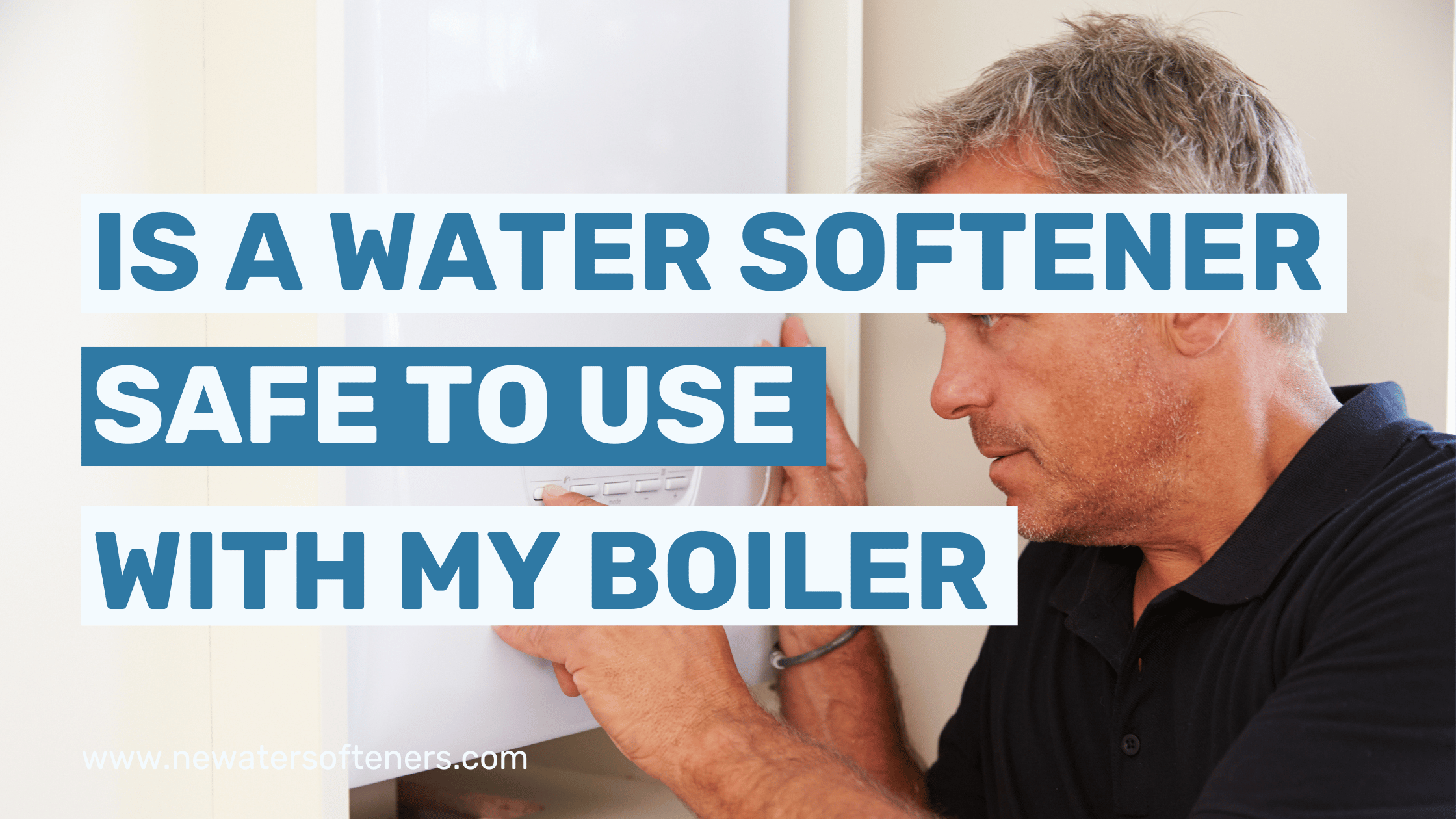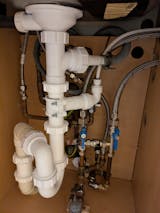Water Softener Boiler: Is a Water Softener Safe for My Boiler

Water Softener Boiler: “Will a water softener work with my boiler and is it compatible with my heating system?” is a question we hear from many of our online customers.
In short – yes! A water softener can increase the efficiency of your boiler and heating system, however there are some myths and confusion around this topic which we will explain in this article!
First, the Benefits of Using a Water Softener
A water softener works to remove hard water minerals from your main water supply and feed. If soft water enters your combi boiler & heating system, it will work to prevent limescale and actually remove all the scale in your existing system to restore it back to its original efficiency.
If you have hard water, limescale can build up and coat the inside of your boiler and pipes. This build up requires more energy to heat – resulting in a less efficiency heating and hot water system that takes longer to heat up and increases your energy bills. Not only that, but limescale can also result in blockages, causing costly breakdowns and damages.
Using soft water through your heating system is beneficial as it can prevent any limescale build up and damage. In addition, if you have experienced hard water in your home for some time, it can work to break down and remove existing limescale to improve performance. This is because soft water naturally dissolves chalk and lime and can do so in your pipework and hot water cylinder. The heat of the system can also play a part in the process by increasing the rate and speed at which the scale removed.
So Why Was It Not Advised to Use Soft Water?
The Old Advice
The old advice stated by the British Standard in 1992 BS7593:1992 claimed that the use of a soft water in boilers using aluminium heat exchangers would cause degradation in the system itself. They advised that the water softener must bypass the boiler and heat exchanger.
However, this advice was challenged by a long-term study which occurred over several years. The research demonstrated that softened water was in fact not a corrosion problem and in 2006 the relevant British Standard for water treatment for boiler feed was amended.
The New Advice
The latest British Standards recommendations, the BS 7593:2006, states that softened water can enter the system. It states soft water can either:
- Bypass the heating and boiler system aka not enter the system – but a formulated inhibitor MUST be used to prevent dirt and build up.
- Or soft water can be used in the boiler and heating systems – but a formulated inhibitor MUST be used to prevent dirt and build up.
An inhibitor is a chemical that is added to your heating system during installs and services. Its primary role is to prevent dirt and blockages that damage the system. So essentially this means, while a water softener can provide benefits and reduce limescale build up and damage this may cause in your heating system – the British standards do not want a softener to be communicated as an alternative to using an inhibitor.
In Summary
In summary, soft water is good for your home and heating system and research has proven this does not cause erosion or damage. According to the BS, regardless of if you do connect your boiler or do not - it is advised you use an inhibitor. Therefore, there is no practical difference between using hard or softened water, but soft water will help prevent limescale and maintain or increase the efficiency of your heating system.
Very few boiler manufactures now still prohibit the use of soft water in the primary circuit – however few still adopt the previous British Standard BS 7593:1992 guidance which was updated in 2006. It is worth checking with the boiler manufacturer prior to installation (if your boiler is still under warranty) – to ensure soft water will not invalidate your warranty. This is a rare occurrence and in most cases softener water is allowed. Where the use of softened water is not allowed, industry advice is that the softener is bypassed, and a hard supply is used, or the boiler is connected to a separate untreated supply.

